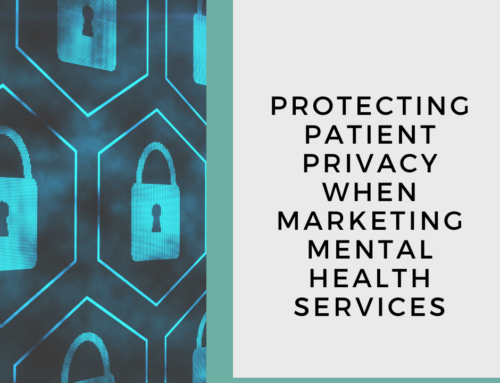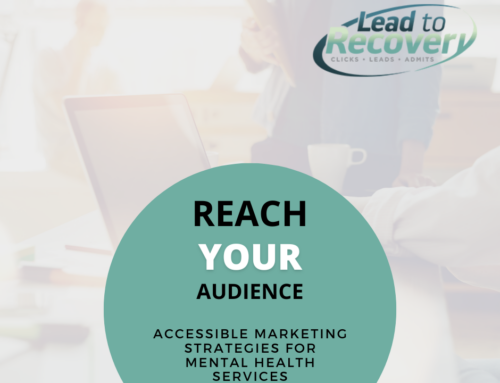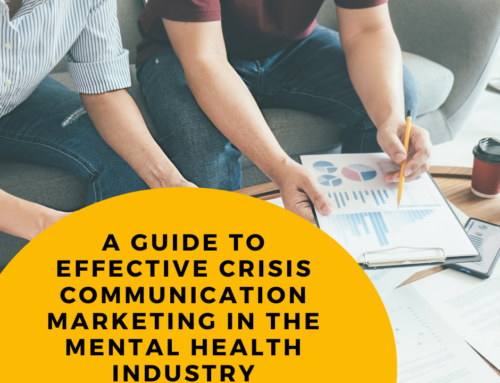What Are The Ethics in Mental Health Advertising?
In an era where mental health education and awareness are on the rise, the way it’s advertised can significantly impact societal views and understandings. This post explores the evolution of mental health advertising, its influence, the importance of considering ethical concerns, and how to create responsible media and ad campaigns that respect and represent individuals dealing with mental illness.

The Evolution of Mental Health Ads
Once shrouded in stigma and misunderstanding, professional services for mental health have progressively taken center stage in public discourse. This evolution is partly due to campaigns that, over the years, have transitioned from fear-based messaging to more empathetic, honest and realistic representations. The drive to raise awareness and destigmatize mental health has seen the involvement of celebrities, the integration of storytelling, and the use of various multimedia platforms to reach a wider audience.
The Influence of Advertising on Mental Health Awareness
Advertising plays a pivotal role in shaping public perception of mental health treatment. A well-crafted marketing campaign can dispel myths, foster understanding, and encourage those struggling to seek help. Conversely, insensitive or sensationalized ads can reinforce stereotypes, causing harm to those it’s intended to support. It’s clear that advertisers wield significant power in influencing the conversation, highlighting the necessity for ethical considerations in both market research and campaign creation.
The Importance of Ethics in Advertising
Ethics isn’t merely a peripheral concern—it’s an integral aspect that serves as the moral compass guiding advertisers’ decisions and practices. Ethical advertising involves creating and promoting messages that are truthful, fair, and responsible. It implies avoiding deceptive practices, respecting consumers’ and clients’ privacy, and promoting a product or service without causing harm or exploiting vulnerable audiences. This consideration of ethics becomes even more critical in ads, where the potential for causing harm is heightened.
Ethical ads in the healthcare field demand a sensitive and informed approach. Misleading or inappropriate content can perpetuate harmful stereotypes, misinform the public, and cause unintended harm to those dealing with mental health issues. The portrayal of different conditions in an advertisement can significantly influence people’s perceptions and attitudes. If mental illness is depicted as frightening or linked to violence, for instance, it could exacerbate public stigma and discrimination.

In contrast, advertisements that truthfully represent mental health conditions, honor the experiences of those affected, and promote services or products responsibly can have a positive impact. They can help to dispel myths, encourage individuals to seek help and stimulate a more compassionate and informed community conversation around mental health services.
Ethical considerations are essential in mental health education to ensure that communications respect human dignity, provide accurate information, and contribute to a more understanding and supportive societal perspective on mental health.
The Impact of Ethical Ads on Public Perception
Ethical ads can help reshape public perception of mental health. By presenting mental illness accurately, empathetically, and inclusively, advertisers can combat stereotypes, promote understanding, and create a business environment where these conditions are discussed openly and supportively.
Key Ethical Issues in Healthcare Ads
Despite our growth in understanding mental illness and disorders, several ethical issues persist in the media and the advertising of these different conditions. It is important for those marketing mental health services, treatments, or programs
Stigmatization and Stereotyping
Stigmatization and stereotyping remain significant challenges for mental health professionals when it comes to ads. Often, conditions are unfairly associated with negative stereotypes—for example, that individuals with these conditions are dangerous, weak, or incapable. Advertisements that portray these conditions in limited and harmful ways further stigmatize people, making it harder for individuals to openly discuss their experiences or seek help.
Stigmatization also creates a societal barrier, fostering misunderstanding, prejudice, and discrimination against individuals with mental illness. Thus, it’s essential for advertisers to responsibly and accurately represent these conditions, refraining from using damaging stereotypes in marketing their content.
Misinformation and Misrepresentation
Another major ethical issue is the spread of misinformation and the misrepresentation of mental illness. Advertisements that oversimplify or dramatize what a mental health professional treats can result in public misunderstanding and perpetuate existing misconceptions. For instance, if an advertisement implies that depression merely involves feeling sad or that all individuals with schizophrenia experience hallucinations, it fails to communicate the complexity and variability of these conditions.
Misrepresentation can also occur when advertisements highlight or exaggerate rare side effects of treatment options, potentially deterring both potential clients and new clients from seeking necessary help. Advertisers must strive to ensure their content accurately represents the realities of mental illness and the available treatment options.
Sensationalism and Fearmongering
Sensationalism and fearmongering represent another unethical approach. Some advertisements might exploit dramatic, shocking, or scary elements to grab attention or persuade audiences. While this might achieve short-term engagement, it contributes to a culture of fear and misunderstanding.
Sensationalized media portrayals of mental illness can generate undue fear, exacerbate stigma, and distort the public’s understanding of these conditions. Moreover, such tactics can be distressing and potentially harmful to individuals living with mental health issues. Responsible ads should strive to educate and inform without resorting to scare tactics or sensationalism.
Guidelines and Standards for Ethical Mental Health Advertising
Several organizations have established guidelines to ensure ethical business and ethical practices in health ads. These can be considered as a code of ethics your professional service follows when advertising the therapeutic relationship.
- Advertising Standards Authority (ASA) Guidelines: The ASA advocates for responsible advertising. Their guidelines require the message that mental health be portrayed accurately without promoting harmful stereotypes or offensive material.
- American Psychological Association (APA) Standards: The APA encourages respect and responsibility for individuals’ rights and dignity, requiring honesty and avoidance of harm in all communications.
- World Health Organization (WHO) Recommendations: WHO promotes ethical standards in health, education, training, research and communication, emphasizing respect for human rights and accuracy in disseminating health information.

Creating Ethical and Effective Mental Health Advertisements
The goal of advertising your private practice and professional services should be to encourage understanding, empathy, and support for potential clients. You should keep the following in mind as you create your ad campaigns and marketing strategies for your services:
- Transparency and Truthfulness: Advertisements should provide accurate, clear, and comprehensive information about mental health. This involves a realistic portrayal of mental health conditions, as well as a truthful representation of products, services, or treatments being advertised. Any claims made should be supported by credible sources and research. Misleading or exaggerated assertions can erode trust and potentially harm individuals by creating false expectations or misunderstandings. By upholding transparency and truthfulness, mental health advertisers can contribute to educated, well-informed conversations about mental health.
- Sensitivity and Respect: Advertisers must acknowledge that they are dealing with a subject that directly impacts the lives of many individuals. Advertisements should avoid content that might be triggering or offensive, and they should always treat mental health conditions and the experiences of those affected with dignity and compassion. Respect in advertising also involves protecting the privacy of individuals and avoiding exploitative practices. In this way, sensitivity and respect in mental health advertising can support an environment of understanding and empathy.
- Inclusivity and Representation: Mental health conditions affect individuals across all walks of life, regardless of their age, race, gender, socioeconomic status, or any other factor. Advertisements should strive to reflect this diversity in their portrayals. They should avoid perpetuating stereotypes or implying that mental health conditions only affect certain groups. By promoting inclusivity and representation, mental health advertising can empower individuals, challenge stereotypes, and encourage a more holistic understanding of mental health.
Find a Path Forward with Healthcare Advertising with Lead to Recovery
Creating ethical ads can be challenging, but with the guidance and expertise provided by Lead to Recovery, it’s an achievable business objective. As a digital marketing agency that specializes in mental health marketing services, we are committed to helping our clients navigate these complexities and ensuring your mental health advertising promotes understanding, empathy, and inclusivity. By aligning ethical practices and respecting those affected by mental illness, Lead to Recovery can help you and your business collectively reduce stigma and promote mental wellness.




